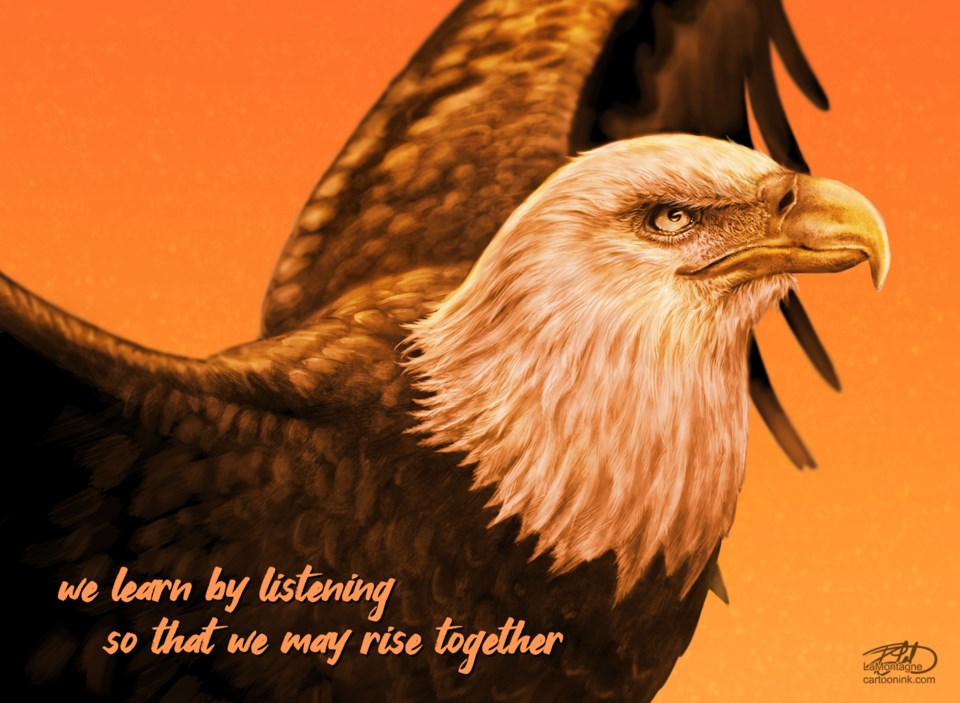Canada has had a troublesome and tumultuous past with its Indigenous people.
For much of the country’s history, we’ve neglected, ignored and attempted to assimilate Indigenous people into a European-based culture at the expense of their own.
Recent years have seen initial attempts made at reconciliation, and while there is significant work to be done, the work has started.
The National Day for Truth and Reconciliation will give communities across Canada a chance to look inwards and recognize the country’s past with Indigenous people.
The solemn day is another opportunity for Canadians to deal with the nation’s past, especially following the discovery this summer of more than 200 children in unmarked graves at the former Kamloops Indian Residential School in the Tk'emlúps te Secwe̓pemc Nation.
The initial find led to searches and similar discoveries across Canada as citizens are forced to learn about what is often referred to as Canada’s forgotten genocide.
The Truth and Reconciliation Commission released its report in 2015 after several years of work, outlining 94 different calls to action that would aid in reconciling Canada’s painful past with its Indigenous people.
The National Day for Truth and Reconciliation was brought forward by the federal government as a response to one of the commission’s calls to action. The day is a statutory holiday for federal employees and federally regulated workplaces and designed to recognize and commemorate residential schools.
The residential school system is among Canada’s most notorious and dark moments. More than 150,000 Indigenous peoples were forced to attend the schools that first opened in 1831 and the last closing in 1996. Though starting as largely religious-run schools, they were mandated under the Indian Act in the early 20th century.
The National Centre for Truth and Reconciliation has confirmed more than 4,100 children died in the schools, including more than 800 in Alberta. There were more than 130 residential schools in Canada, with at least 25 in Alberta and one in Morley that closed in 1969.
Canada has had a long and difficult history with its Indigenous people population and remembering our past interactions.
Across the country, several provinces – Alberta not among them – and municipalities are recognizing the day.
Locally, both the Towns of Banff and Canmore will acknowledge the day, with a series of events to honour the survivors of residential schools, particularly continuing to improve the relationship with the Stoney Nakoda Nation.
Canadian Rockies Public Schools are closed on Sept. 30, but they held an educational component on Sept. 29 for students and staff involving elders from the Stoney Nakoda Nation. Our Lady of the Snows and École Notre-Dame des Monts are also closed for the day.
While just one day, it can serve as a starting point in recognizing the past and working towards a better future. Rather than being seen as a new holiday, continued efforts to use it as an educational forum and a launch pad for improved relationships is a must.
It can provide a chance to reflect, remember and provide a heightened awareness on the legacy of the residential school system.
The work that will follow will be difficult, time consuming and complex, but is necessary to making actual change.
Nothing happens overnight, but if done properly the work can lead to increased respect and better relationships for future generations.
The Indian Residential School Survivors Society can be contacted at 1-800-721-0066. The National Indian Residential School Crisis Line is available 24 hours a day at 1-866-925-4419. The First Nations Health Authority is at www.fnha.ca.




